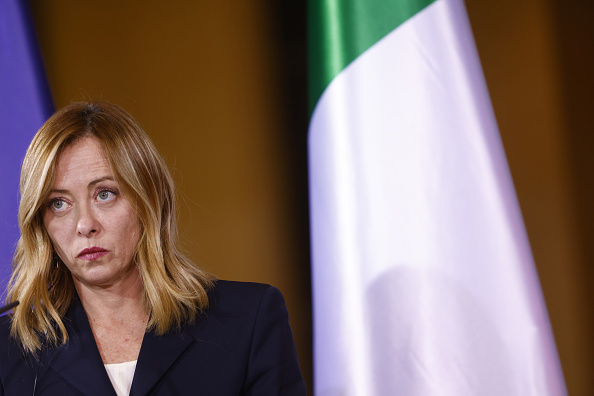A North African pushback has started against Europe over migration after Tunisian President Kais Saied told Italian Prime Minister Giorgia Meloni his country “will never be a point of transit nor a land of settlement” for asylum seekers.
The news came as the presidents of Libya, Algeria, and Tunisia met in Tunis on April 22 to “unify their positions”.
According to Oxford Analytica’s Rawan Maayeh, it is becoming increasingly clear to many that North African countries are becoming increasingly hostile to the idea of serving as Europe’s barrier to mass migration.
“North African countries will cooperate with Europe on border security measures, and will gladly receive economic assistance that improves the difficult local conditions which are driving outward migration,” the analyst told Brussels Signal.
“However, they will push back against any measures that lay the groundwork for permanently hosting migrants in transit.”
European Union leaders’ outsourcing of migration control to their African counterparts has also given Africa’s heads of government increased leverage they seem increasingly likely to use.
With spring bringing more favourable weather conditions for Mediterranean crossings by migrant boats and European Parliament elections in June, it is a politically sensitive time for migrant numbers to be seen to increase — as arrivals to Italy from Tunisia have done in recent weeks.
The Tunisian leader’s comments to PM Meloni when they met on April 17 were described by Italy’s La Repubblica newspaper as “blackmail” with the African leader said to have effectively told his European counterpart that she had the choice of either giving “more money or [accepting] more departures” of migrants to Italy.
Meloni is relying on Tunisia’s help to prevent any further sudden surge in migration from disrupting June’s EP elections. A repeat of what happened in September last year when some 10,000 arrivals from Tunisia landed on the Italian island of Lampedusa in a single month would be “politically disastrous”, according to French newspaper Le Monde.
Meloni’s latest visit to Tunisia was her fourth in 12 months.
Her so-called “Mattei Plan” is designed to position Italy as a “bridge” between Europe and Africa.
Tunisia is where the Mattei plan is being “first put to the test, thanks to the personal relationship” between Saied and Meloni, said Maria Fantappie of the Instituto Affari Internazionali.
Under the “bridge” plan, Italy will make substantial financial commitments to contribute to African economic development, with the “main political driver” of addressing the EU’s “root causes of migration” and energy security, according to the Italian institute.
The pushback from Tunisia comes as the EU is increasingly reliant upon partnerships with North African countries to manage migration. December 2023 saw deals by European Commission President Ursula von der Leyen being struck with both Morocco and Tunisia.
Von der Leyen has increasingly sought to head-off European voter worries about increased migration, in part by imitating the UK’s plans to outsource processing of its asylum seekers to Africa.
The UK, though, has also encountered a recent resistance over its intentions.
Morocco and Tunisia refused to become third-country processing centres for the UK, together with Namibia and Gambia, according to UK foreign ministry documents seen by The Times on April 15.
British Prime Minister Rishi Sunak told the Foreign Office and the Home Office to explore other partners besides Rwanda, including “all possible plan-B options” in case the UK’s Rwanda migrant relocation deal collapsed, the leaked documents revealed.
In the end, the UK entered discussions with Armenia, the Ivory Coast, Costa Rica and Botswana, despite the foreign office expressing concerns about each.
Sunak even used the May 2023 coronation of King Charles III to lobby the leaders of countries that might process asylum seekers.
For Meloni, the strategy appears to be to offer more money for now.
During her visit to Tunis, she announced €50 million in direct support to the Tunisian State budget for “energy efficiency and renewable energy”, along with a €55 million credit line for small businesses in the country.





